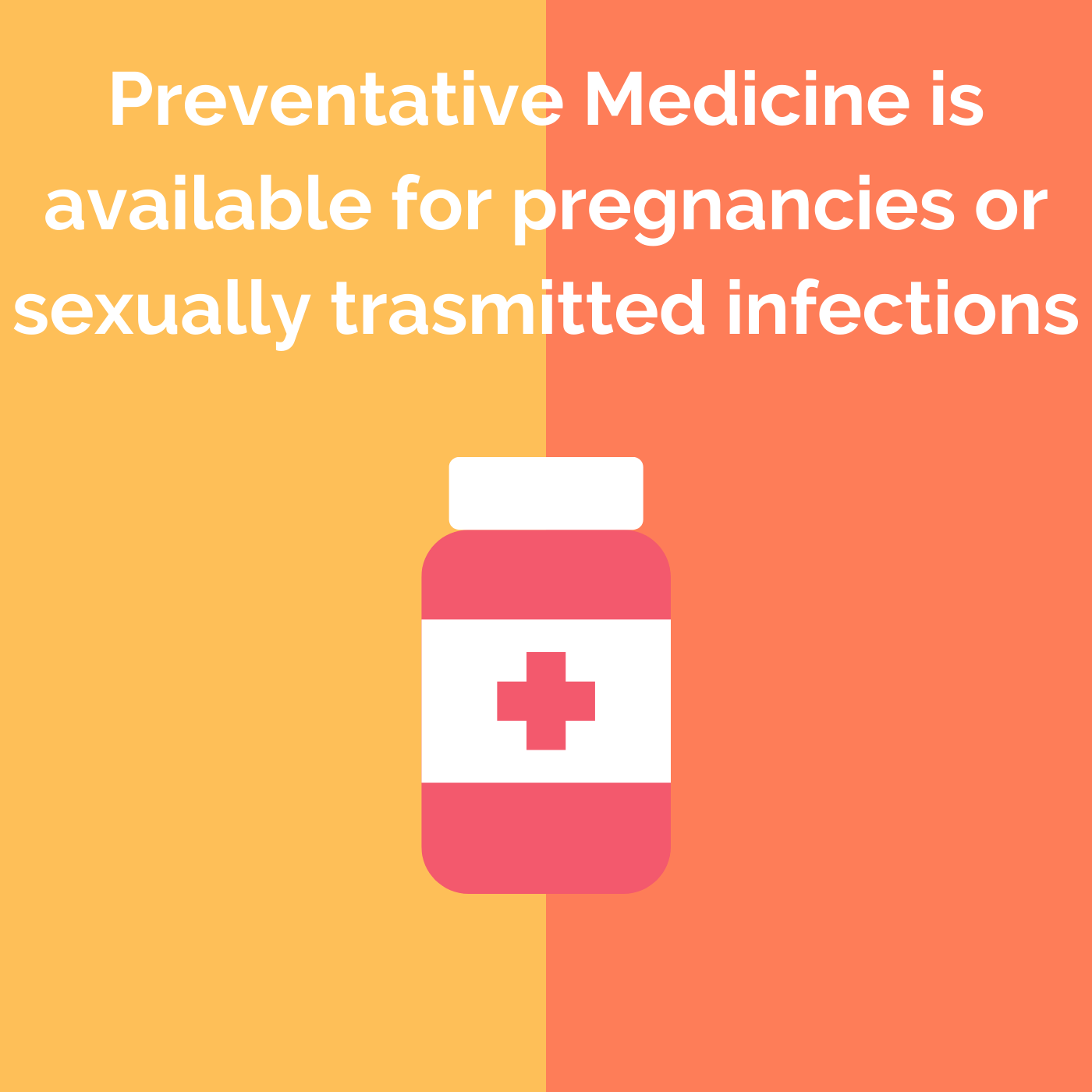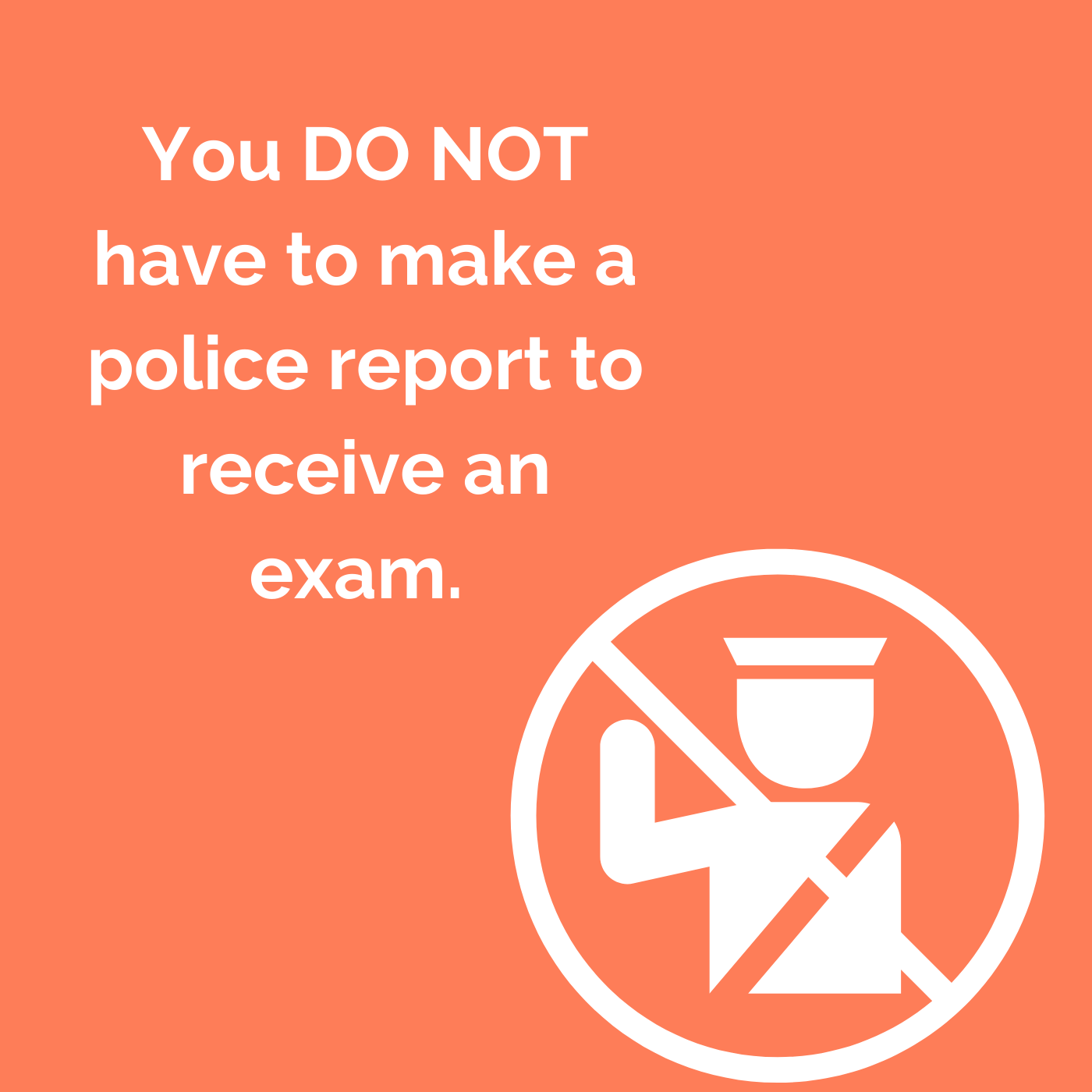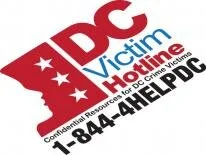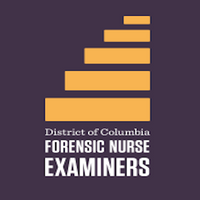Medical forensic Exams
There is no right or wrong decision to make following a sexual assault.
You choose what feels right to you.
The first few moments after a sexual assault can be a very difficult and confusing time. You may have questions and be faced with multiple decisions. During this time you may not want, or be ready, to make many of these decisions. This is common and okay.
You can call the DC Victim Hotline at 1-844HELPDC (844-443-5732) 24 hours a day, 7 days a week, 365 days a year to be connected to an advocate. Advocates can talk through your options with you. If applicable, advocates can provide free transportation to the hospital and stay with you throughout your exam if you want them to.
If you are in immediate danger or seriously injured, you can call 911 or go to your nearest ER.
FAQs About Medical Forensic Exams
What is a medical forensic exam?
A medical forensic exam is a complete head-to-toe examination following a physical or sexual assault. The exam is done by a forensic nurse, who is a registered nurse and specially trained to care for people who have experienced violence.
Is a medical forensic exam a type of rape kit?
In DC, the "rape kit" is called a Physical Evidence Recovery Kit (PERK) and it is used to collect physical evidence for DNA and other testing. If you were sexually assaulted, and you consent to having evidence collected, a forensic nurse may collect a PERK.
Where can I get a medical forensic exam?
There is only ONE hospital in DC that provides medical forensic exams—MedStar Washington Hospital Center.
Please note that a survivor can get a medical forensic exam WITHOUT having to report to law enforcement or campus authorities.
What do I need to know to prepare for a medical forensic exam?
Within 5 days or 120 hours of a sexual assault
You can be examined and cared for at an emergency room. The sooner you get to the hospital after an assault, the more options you may have.
Preventative treatments for pregnancy and sexually transmitted infections are more effective.
Evidence collection is an option. You do not need to report to the police to have evidence collected, but if you do have evidence collected, you may have more options in the future. Our advocates can help you file a police report and refer you to our legal program if you have more questions.
Toxicology testing is available within the first 96 hours after an assault if there are signs that drugs or alcohol may have been used in the assault. Ask for a toxicology kit during your hospital visit if you think you might have been drugged.
Try not to bathe, shower, brush your teeth, chew gum, eat, drink, smoke, or go to the bathroom. This is important for keeping evidence. If you already have, it is still possible to collect evidence.
If possible, do not change your clothes. If you already have, put your clothes in a clean paper bag, such as a grocery store bag, and bring them with you to the emergency room.
It is ok if a survivor has done one or more than one of these actions; however, the recommendations are made to increase the chances that the forensic nurse will collect as much evidence as possible during the exam.
NVRDC advocates can answer additional questions you have about medical forensic exams, help you with transportation to the hospital, meet you at the emergency room, and stay with you throughout your exam.
If you have concerns about the hospital exam being billed to your insurance, or your parents' insurance, talk to your NVRDC advocate or hospital staff.
You can choose not to go to the emergency room and still get support by calling the DC Victim Hotline.
Anytime after 5 days or 120 hours of an assault
It is best to visit your own primary health care provider or a health clinic for medical care. If you do not have a provider, or don't want to go to them about the sexual assault, call the DC Victim Hotline and they will help you find appropriate medical care.
Preventative treatments for pregnancy and sexually transmitted infections can still be effective.
You still have the option to report to the police.
You can still get support by calling our DC Victim Hotline.
There is no right or wrong decision to make following a sexual assault. You do not have to get an exam. You do not have to go to the police.
To learn more about medical forensic exams, visit the DC Forensic Nurses website.
TRACK YOUR PERK
Click here to check the status of your Physical Evidence Recovery Kit (PERK).
STUDENT-SURVIVORS: FAQs and resources for students at DC colleges and universities
Click here to learn about resources available on and off-campus.
ADDITIONAL INFORMATION
Click here to learn more about sexual assault.
Click here to learn more about consent.







